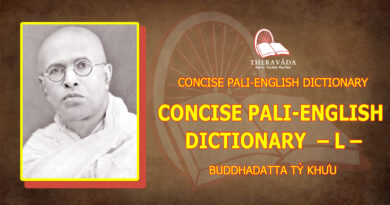NO INNER CORE – ANATTA: DIRECT EXPERIENCE OF ANATTA
NO INNER CORE – ANATTA: DIRECT EXPERIENCE OF ANATTA
The anatta doctrine is extremely difficult to comprehend. One can speculate or ponder about it – that is one kind of knowledge, acquired by listening to a lecture or by reading. One may also ponder over it more deeply in contemplation. But one can only really penetrate into it during vipassana meditation.
When yogis practice, they keep themselves aware of everything. When they see something, there are two things: the mind which sees and the object seen, apart from these, there is nothing. More specifically, seeing is a process which depends on four things: the eye, the visible object, light, and attention to the object. If one of these conditions is lacking, no seeing occurs. If one does not have eyes, no atta can make one see. Only when all conditions are met does seeing consciousness arise. No agent like atta is a part of this.
Likewise, when yogis note themselves thinking during meditation, they note “thinking, thinking, thinking,” and they find only thinking and the mind which notes it – they do not find a self or ego or atta. They do not find that “I am thinking,” unless they add this idea as an afterthought. They really only find that thinking is occurring. In this process, yogis can see the impermanence of mind and thought: one thought comes, then goes; another thought comes and goes, and this goes on and on.
A new thought comes every moment, arising and disappearing. They directly see the impermanence of thought. They can also notice the impermanence of material things, such as physical pain, by noting the arising and disappearing of the pain in the body. They can see that all things are oppressed by rise and fall, by arising and disappearing. This oppression of phenomena by arising and disappearing is the characteristic of dukkha (suffering).
Unwisely, we desire for things to be permanent, yet we realise that we have no power to make impermanent things permanent; we realise that we have no control or authority over things. No inner core, no atta, can be found in any observed phenomena. Yogis can discover this anatta nature of things in Vipassana meditation, because gradually they bring awareness and concentration to a high degree and then they have penetrative knowledge into the true nature of mind and body.









